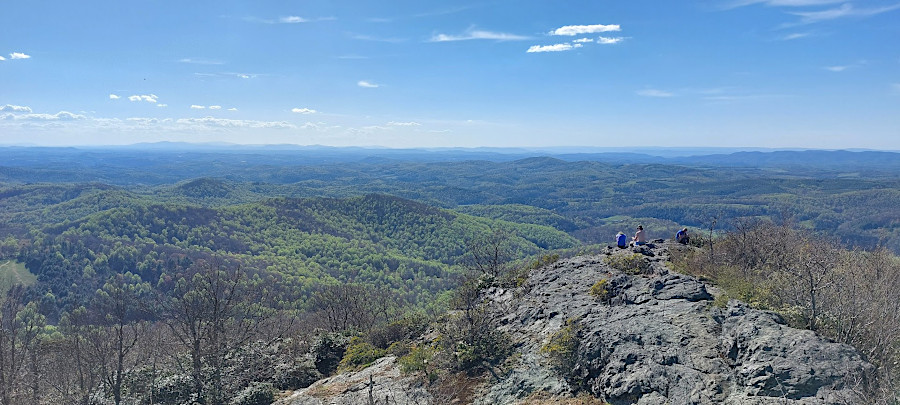
a conservation easement protects the vista looking west from the top of Buffalo Mountain in Floyd County

a conservation easement protects the vista looking west from the top of Buffalo Mountain in Floyd County
The physical geography of a place once provided the primary context for the culture of the people who lived in that place.
Climate shaped how people dressed, the animals they hunted, and the foods they could raise. Mountains, deserts, and other physical barriers isolated groups of people, so they developed different languages, different styles of clothing, different religious beliefs, and different shapes of "points" and other tools. Oceans also blocked communication and trade - until the residents developed rafts, canoes, and finally ships that could move against the currents and the wind.
Until 500 years ago, Native Americans and Europeans were unfamiliar with the culture and the technology on the other side of the Atlantic Ocean. European discovery of Virginia did not lead immediately to European settlement in Virginia. It took over a century from the time Columbus "sailed the ocean blue" before Europeans successfully established a colony in Virginia.
European settlement of Virginia displaced the native culture that had evolved over 10,000-plus years. European colonization dramatically transformed both the cultural and the natural landscape. The Europeans incorporated a few aboriginal place names (such as Quantico) and agricultural crops (such as corn) into their culture, but discarded most of the rest of Native American culture while replacing forests with farms.
Often, cultural change is driven by technology brought by a competing group, or developed within a society. The creation of new transportation and communication technologies - sailing ships, railroads, the telegraph, radio, television, and now the Internet - have made it far easier to experience other cultures in person or virtually. We can travel vast distances in a day compared to just 400 years ago, when the Jamestown colonists spent five months (December 1606-April, 1607) trying to cross the Atlantic from England to the Chesapeake Bay.
Prior to European settlement in Virginia, the tribal lifestyles were closely integrated with the resources available in a particular area at a particular time. The Algonquian-speaking Powhatans, with access to seafood, lived differently than the Monacans. Today we can conquer seasonal limitations on food through modern shipping. Supermarkets offer fresh vegetables from California, Chile, etc. throughout the year, even in January. As a result, Virginians tend to forget the basic connections between land and latitude that were so essential in defining "Virginia" vs. "elsewhere" until very recently.
The National Park Service now manages certain places in national parks to protect spiritual values (i.e., by limiting climbing on Devil's Tower in Wyoming). That manaagement sensitivity reflects the recognition that certain places have meaning far beyond the provision of food and shelter. Of course, not every claim of cultural "specialness" results in government action to preserve the place without modification. In Virginia, the Mattaponi tribe claimed the King William Reservoir would destroy a secret sacred site, but local and state agencies brushed aside that concern.
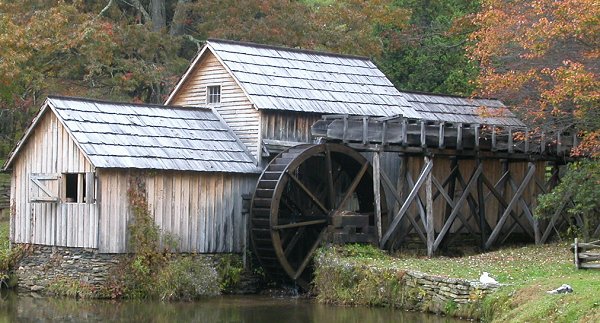
Mabry Mill on Blue Ridge Parkway
Do you automatically get a sense of place because you are connected through a bloodline to people who once lived there? Perhaps not, but others do. A sense of personal connection to the "family farm" or "family home" may continue, long after the place was sold to strangers. The repatriation process for excavated human remains and artifacts defined in the Native American Graves and Repatriation Act suggests that the one-time occupants of a location (such as Kennewick Man) have a special connection to a place, and their skeletons should be returned to the tribes who live there now for reburial.
Isolation allowed distinctly different cultures develop over time. Less than 150 years ago, most Virginias never traveled more than 50 miles from where they were born. Today, isolated places without regular visitors are rare on earth. Physical isolation has been overcome by low-cost travel. Thanks to technology such as radio, television, and Twitter, cultural isolation has become rare. Governments have discovered that they can no longer block their citizens from accessing information, and teachers have discovered students can double-check facts presented in lectures during the middle of classes.
Clothing styles and musical fads are now global. As modern communications and transportation systems make it easier to understand events across the globe, what will cause cultures to maintain their special identity? Are we destined to end up homogenized, with one global language? Already, airline pilots are required to understand English in order to communicate with aviation controllers.
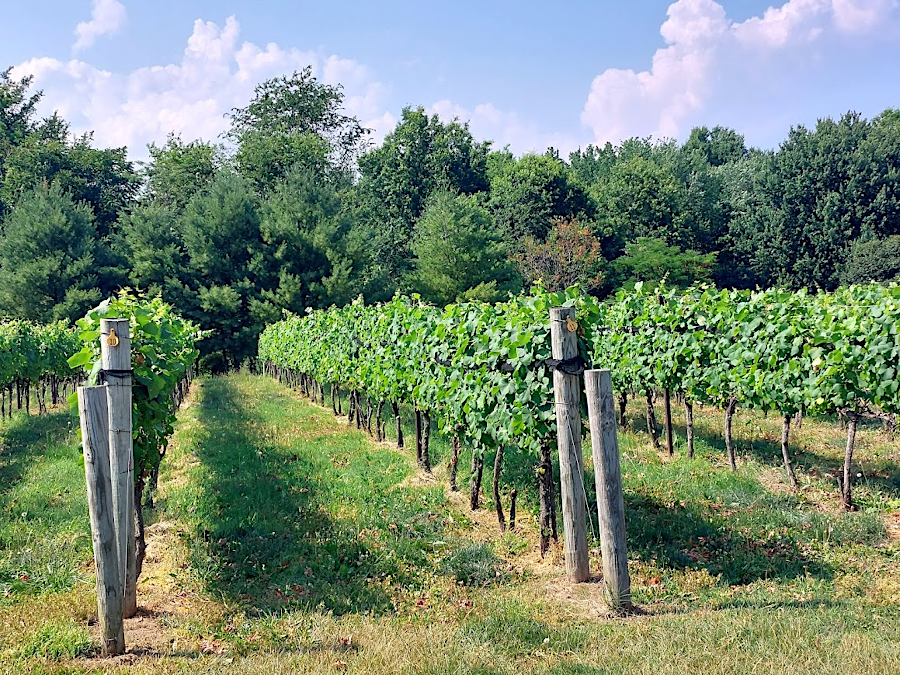
vineyard at LaGrange Winery in Prince William County
What changes lie in the future? Will easy access to information make it inevitable that every country will migrate to a common political system based on the "democratic principles" espoused by Greek and Scottish philosophers, then implemented most clearly in the United States after the American Revolution? If you think we are destined to have one form of government and "democracy is inevitable," do you also think different political and religious beliefs will be able to withstand globalization and homogenization?
Even if cultural differences result in different forms of government, will certain ethical values end up being codified into law and accepted by all judicial systems, in order for global trade to be conducted by a common set of rules? Will World Trade Organization (WTO) negotiations mandating environmental and labor standards inevitably push different societies in different places to become more similar?
Will places stay distinct, or will all new urban developments follow the same pattern and resemble Fairfax Town Center?
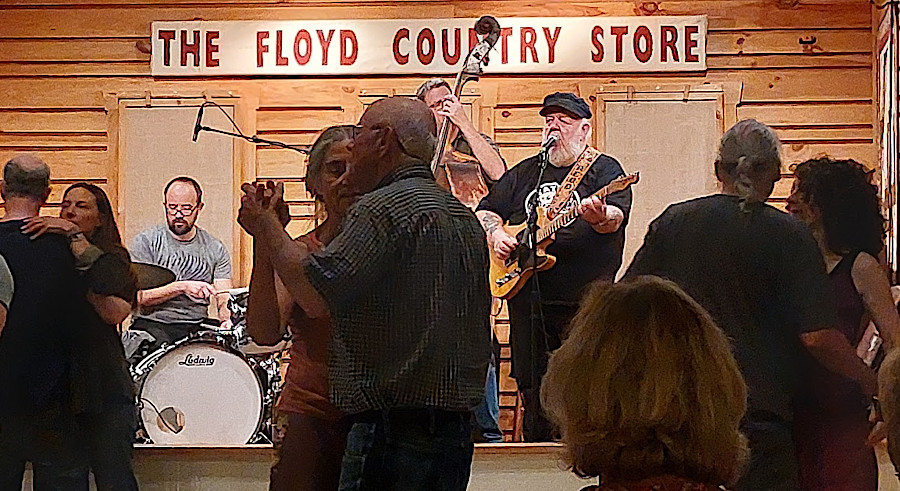
the Crooked Road was designated as Virginia's Heritage Music Trail by the Virginia Assembly in 2004
Place and culture are connected... but how tightly do you feel your perspectives have been shaped by where you live? Has there been enough time for a new "Virginia culture" to develop in just 400 years after Jamestown? As one author asked:1
Think ahead, far ahead. Someday, more transportation improvements may allow humans to travel through space and reach other planets and galaxies, just as Europeans reached Virginia starting in the 1500's.
When space travel is available to more than just a few well-trained specialists and very rich tourists, what will happen to our culture? We could see a fusion, merging the best characteristics of society on Earth with elements from some extraterrestrial culture... or the current Virginia culture could be displaced yet again.
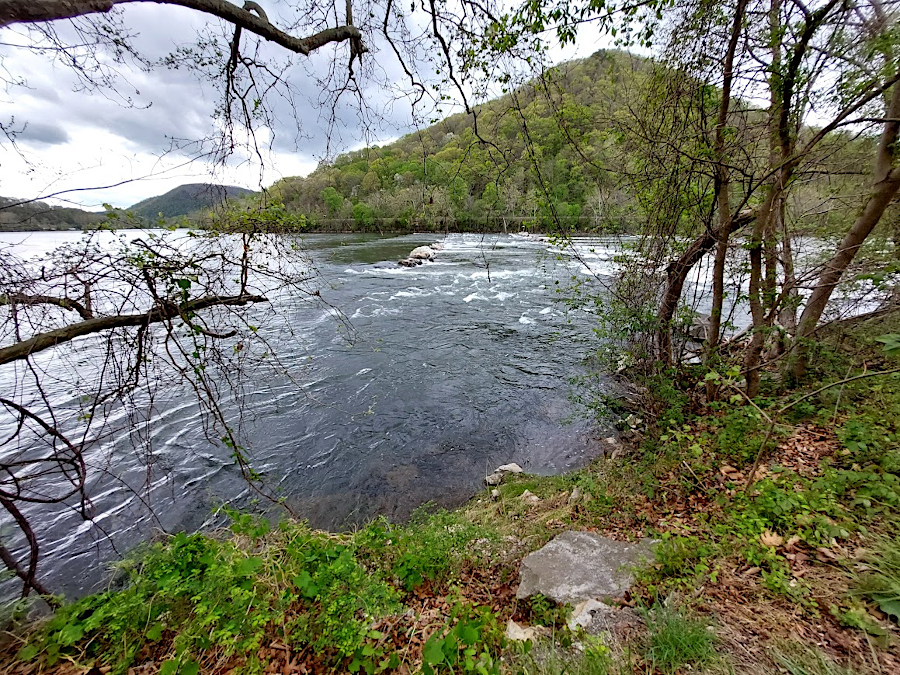
many Radford and Viginia Tech students enjoy inner tube trips across McCoy Falls on the New River
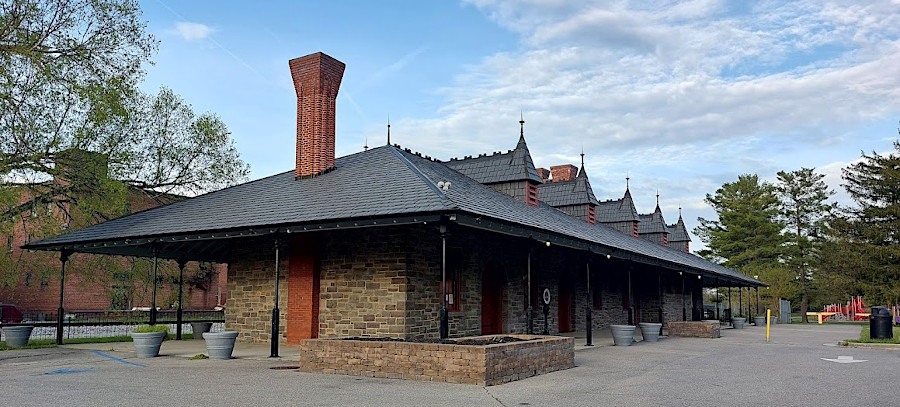
the restored Norfolk and Western Railway station in the Town of Pulaski